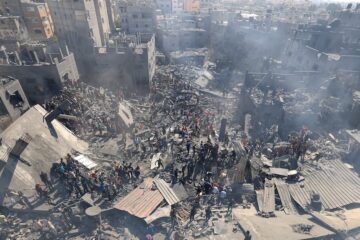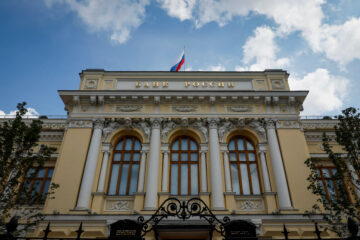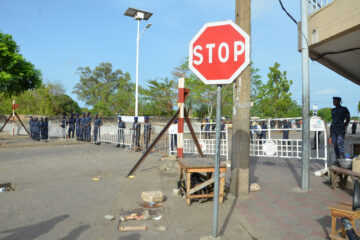Burkina army enters capital as coup leaders free president, PM
Burkina Faso army troops have entered the capital Ouagadougou without resistance and begun negotiating the surrender of coup leaders, police said Tuesday, as the interim president and prime minister were freed.
"All units (of the army mobilised on Monday to march on the capital) reached Ouagadougou" overnight, Colonel Serge Alain Ouedraogo, deputy head of the Burkinabe police, told AFP.
"We must now secure the surrender of the (coup leaders) without gunfire or bloodshed," he said.
Witnesses said cheering crowds greeted the military units along their march to the capital.
With domestic and international pressure growing on the coup leaders to lay down their arms, they released the country\’s interim president and prime minister, whose seizure on Wednesday kicked off the putsch.
French ambassador Gilles Thibault tweeted that interim president Michel Kafando, who had been under house arrest, was now "at the French residence".
A police source and a member of Zida\’s entourage told AFP that interim prime minister Isaac Zida, held at the presidential palace since the coup on Wednesday, had been allowed to return to his official residence.
Soldiers from the powerful RSP presidential guard regiment loyal to ex-leader Blaise Compaore detained the interim leaders on Wednesday, plunging Burkina Faso into turmoil just weeks ahead of an election planned for October 11.
The RSP, an elite unit of 1,300 men, officially declared a coup the following day and installed General Gilbert Diendere, a close Compaore ally, as the country\’s new leader.
At least 10 people were killed and more than 100 injured in protests sparked by the coup, ahead of what would have been the first elections since Compaore was ousted in a popular revolt last October after trying to extend his 27-year grip on power.
The putsch sparked international uproar, with former colonial power France urging coup leaders to surrender and an African delegation attempting to mediate in the crisis.
French President Francois Hollande demanded "all those involved in the putsch to immediately lay down their arms and hand over power to the legitimate authorities — or face the consequences."
He warned that France, which still wields significant influence in its former African colonies, could also "apply sanctions to those opposing the holding of regular elections".
A similar call was also issued by the presidents of Niger and Chad, who called on the renegade soldiers to "return to the barracks" and hand back power to the transitional administration.
Following the coup, Senegal\’s President Macky Sall, the rotating head of the Economic Community of West African States (ECOWAS), undertook three days of mediation and on Sunday came up with a 12-point plan to end the crisis.
The ECOWAS deal provided for presidential and parliamentary elections to be held by November 22 at the latest, and crucially allowed for pro-Compaore candidates to take part after they complained about being excluded from the October vote.
ECOWAS mediators said the fate of the RSP should be decided by a future Burkinabe leader.
They have also proposed an amnesty for those behind the coup — a suggestion that has sparked widespread anger on the streets.
Diendere on Monday had said he would honour the ECOWAS proposal and hand over power.
But Kafando told France\’s RFI radio he had "serious reservations" about the peace deal and was sceptical that any solution to the crisis would be achieved during an emergency summit of the group in Abuja on Tuesday.
He said he had not been invited to attend.
SOURCE: AFP
[do_widget_area inner_adsbar]










